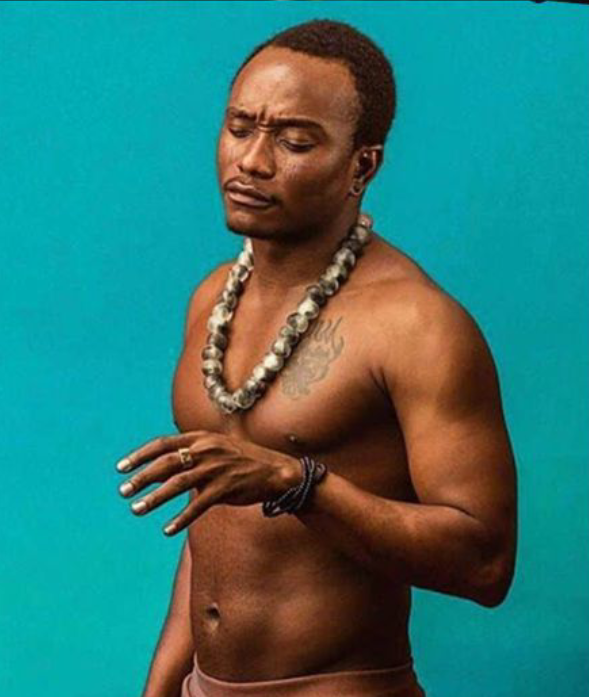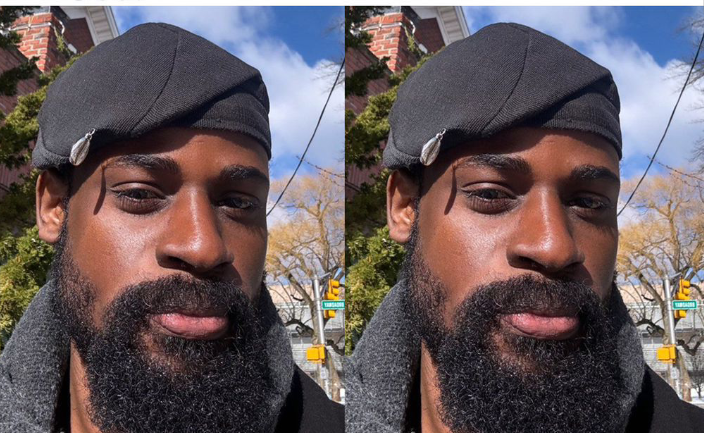
“Brymo Sparks Controversy: ‘Stop Jumping on Every Hit Song Remix’ — Singer Calls Out Nigerian A-Listers

Nigerian singer and songwriter Olawale Ọlọfọrọ, popularly known as Brymo, has once again stirred up heated conversation in the music industry with his blunt and unapologetic take on what he sees as a troubling trend among Nigeria’s mainstream music stars. In a recent Instagram post that has quickly gone viral across multiple platforms, the alternative music maestro called out A-list artistes such as Burna Boy, Davido, and others, urging them to quit the habit of constantly featuring on remixes of already successful songs released by upcoming artistes. According to Brymo, this pattern of “jumping on every hit” is not only unnecessary but also damaging to the growth of newer acts who should be allowed to shine and navigate their paths in the industry without interference from the biggest names.
The statement, bold and characteristically fearless, read like a direct message to Nigeria’s music heavyweights: “Dear Nigerian mainstream A-listers, Burna, Davido, and Co., stop jumping on every hit song in a remix, especially releases by newer acts. Let other artistes find their own way. The pretending to be helping them reach higher is a ridiculous watch. Stop seeking relevance in the efforts of ones who know little about the business… it’s vile!”
Brymo’s words landed like a thunderbolt on the internet, igniting intense debates among fans, critics, and industry insiders alike. While some praised him for saying the truth that many have quietly observed, others accused him of being bitter or envious of the visibility that mainstream stars bring to budding artistes. But one thing remains certain: his remarks have opened yet another chapter in the ongoing conversation about originality, mentorship, and power dynamics in Nigeria’s music space.
At the heart of Brymo’s criticism is the notion that superstar artistes often swoop in to remix a buzzing song by a new act once it starts to gain momentum. From street pop anthems to Afrobeats bangers, the pattern has been repeated countless times over the years: a fresh song takes off organically, gains massive street credibility, and then suddenly an A-list artiste joins the remix, sometimes overshadowing the original creator in the process. While this strategy often leads to more streams, wider reach, and bigger commercial success, Brymo believes it comes at the cost of authenticity and stifles the growth of the younger artiste who might be left in the shadows of the giant featuring on the track.
Supporters of Brymo’s statement argue that he has a point. They note that the Nigerian music industry is already brutally competitive, with newer artistes struggling for recognition in an environment dominated by the international fame of heavyweights like Burna Boy, Davido, Wizkid, and Olamide. In such a climate, attaching a superstar’s name to a remix can easily make the original song seem incomplete or less significant without the “big feature.” According to Brymo’s camp of supporters, this makes it harder for the younger artistes to establish their independent brand identity, since the public tends to associate their breakout moment with the A-list artiste rather than their own effort.
On the other hand, critics of Brymo’s view argue that collaborations have always been part of music culture worldwide. They insist that having a superstar feature on a remix is a sign of endorsement that can help propel an upcoming act to the next level. For instance, when a young artiste suddenly gets Burna Boy or Davido on a remix, it opens doors to bigger stages, international playlists, and audiences that may never have discovered them otherwise. In this sense, the remix becomes a powerful marketing tool that extends the lifespan of the song and boosts the credibility of the new artiste. To many, this is not “vile” as Brymo describes, but rather a smart business move and a sign of unity within the creative community.
Brymo’s reputation for bluntness adds fuel to the controversy. Over the years, he has cultivated an image of being a maverick who refuses to conform to the mainstream narrative of Nigeria’s music scene. While he enjoys a loyal fan base that reveres him as a genius for his deep, poetic, and experimental sound, he has also built a track record of calling out the industry and its biggest stars whenever he feels things are not being done right. His latest outburst is simply another example of his no-holds-barred approach to speaking his truth, even if it means ruffling feathers among his peers.
The singer’s statement has also prompted questions about mentorship and gatekeeping in the music industry. Should A-list artistes step back and allow new acts to chart their own course without interference, or should they continue to collaborate in order to help the next generation rise? Some industry observers believe that what is missing is balance. Instead of hopping on every already-viral track, the big stars could provide mentorship behind the scenes, collaborate on original projects that give the younger artistes equal footing, or even invest in long-term partnerships that help them sustain their careers beyond a single breakout hit.
Interestingly, Brymo’s call-out has also been interpreted as a subtle jab at the business motivations behind these remixes. In an era where streaming numbers, chart placements, and online buzz are currency, remixes featuring superstars are often used as a strategy to prolong the relevance of a song and to ensure higher commercial returns. Critics of this practice echo Brymo’s sentiments, describing it as exploitative rather than supportive, since the focus may be less on genuinely uplifting the young artiste and more on leveraging their viral moment for financial gain.
The debate is likely to rage on in the coming weeks, especially as fans of Burna Boy, Davido, and other named artistes continue to defend their idols while Brymo’s supporters amplify his perspective. What cannot be denied, however, is that the conversation shines a spotlight on the inner workings of Nigeria’s booming music industry, where issues of originality, recognition, and survival are constantly in play.
Brymo’s statement may be controversial, but it forces both artistes and fans to reflect on what true support looks like in a cutthroat industry. Is it better to give an up-and-coming artiste the spotlight to shine alone, or to collaborate in ways that amplify their reach but risk overshadowing their voice? The answer is not simple, but the dialogue it sparks is essential for the evolution of Nigeria’s music scene.
As the story continues to unfold, all eyes will be on whether Burna Boy, Davido, or any of the other superstars called out will respond to Brymo’s accusation. For now, the alternative singer’s bold words have yet again disrupted the industry conversation, leaving fans debating, critics analyzing, and upcoming artistes silently taking notes. Love him or hate him, Brymo has once again proven that he is unafraid to speak his mind — and in doing so, he has forced Nigeria’s music lovers to reconsider what it truly means to support the next generation of stars.


